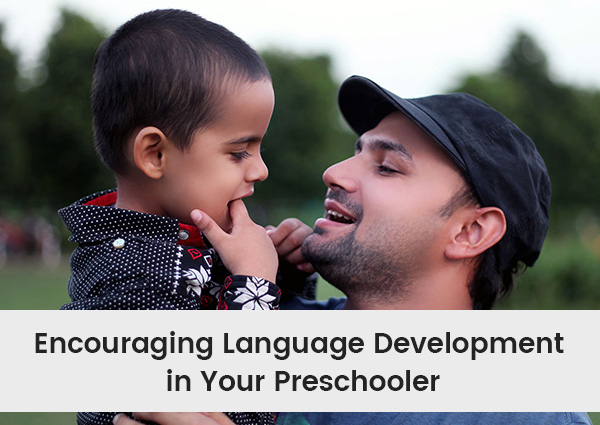
Encouraging Language Development in Your Preschooler
Encouraging Language Development in Your Preschooler
In this article, you will learn about encouraging language development in your preschooler. It’s a moment all parents wait for eagerly: their child’s first word. Once an infant or toddler begins to speak, it’s common to breathe a sigh of relief and take comfort in the idea that the language is right there inside of them – they just need to learn how to express and comprehend it. Parents play a critical role in a child’s language development. Studies have shown that children who are read to and spoken with a great deal during early childhood will have larger vocabularies and better grammar than those who aren’t.
Children need to:
-Learn to understand words, sentences and conversations. This is often called ‘receptive language’.
-Learn how to talk using words and sentences. This is often called ‘expressive language’.
-Know how to use their language socially. For example, listening as well as talking, or talking to a teacher differently than to a friend. This is often called ‘pragmatic language’.
-Say speech sounds correct so they can be understood by others.
Here are some simple ways to nurture your baby’s language development.
1. Talking with other Children
.
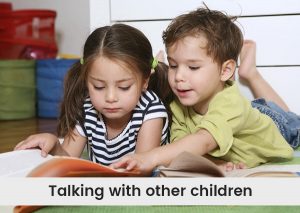
Kids when communicating with other kids of their age group they learn a pattern of speech. They communicate directly while playing and this helps them to express their thoughts with each other.
2. Talking with Adults and Parents.

Communication is vital. Discussions with adults help children to form mental images of people, events, and places, which are important milestones in thinking and learning. Talking with adults introduces proper grammar and complex sentences to children. Parents very well comprehend the feelings of their kids and can encourage them in expressing themselves correctly.
3. Reading.

Read the back of the cereal box, people’s shirts, and signs on the street. The more exposure your child has to speech sounds and language structure, the sooner they will begin to understand it. When reading books, keep in mind you don’t have to read them word for word. Instead…simply look at the pictures and talk about what you see. Like when reading Cinderella, you might say “Oh no she lost her shoe” or “those mice turned into horses”, etc. Regarding this Best Daycare franchise in India will do a great job.
4. Watching TV.

Experiments have shown that kids who watched in Television have shown immediate improvement in their ability to recall information which has boosted up speech in kids. It facilitates kids with the enhanced ability to discriminate certain speech sounds that are common. But excessive indulgence in TV can also affect the speech delay in kids so the parents should fix the time limit for the same.
5. Listen to Music.

There have been studies done to show that listening to music can help children with their language development, all based around the idea that music closely mirrors the pitch, timbre, and tempo of everyday speech. Listening to music with your baby appears to improve the child’s brain function, according to new research. Music experience has the potential to boost broader cognitive skills that enhance children’s abilities to detect, expect and react quickly to patterns in the world.
6. Do not Criticize.

Criticizing your kid for incorrect pronunciation or difficulty in speaking can lead to a negative impact on his attempt to communicate. Over correcting is the exact opposite way of how to improve communication skills. The more you demand they say something right, the worse it may likely get. You don’t want to make talking and saying speech sounds a negative thing because they just might stop doing it altogether.
At Cambridge Montessori Preschool and Daycare, one of the Best Preschool in Delhi, kids are taught various speech patterns by the teachers which enable them to gear up with their language development. Also, there are parental sessions to discuss any speech impairment or delay in kids with their parents to rectify as soon as possible.

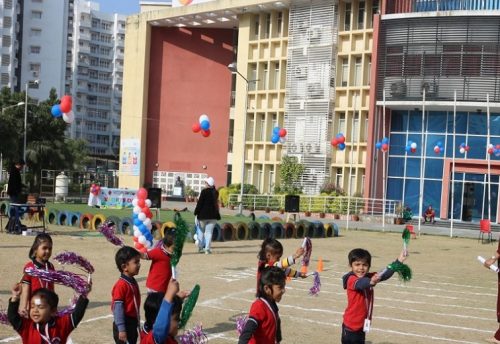
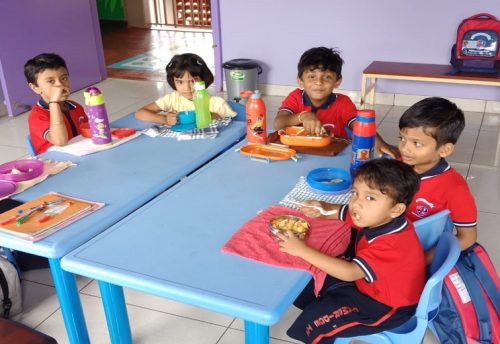
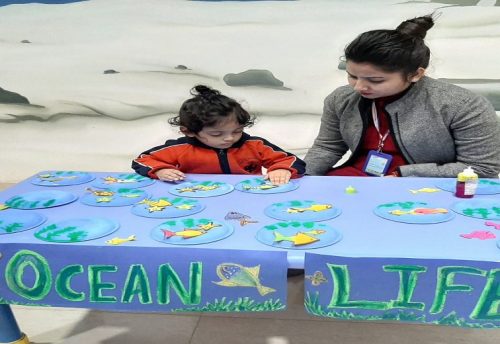

Leave a Reply